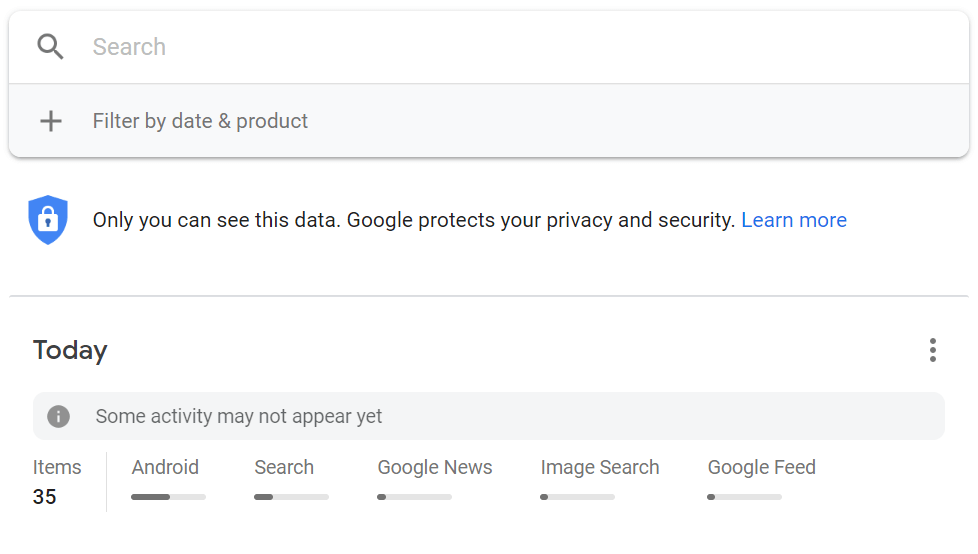Bottom line: Removing your search history from Google's servers has gotten easier, but the amount of data that Google collects is still not going to be reduced anytime in the foreseeable future.
Utilizing the powers of Google Search come at the cost of sharing data. Everything that gets entered into the search box or Chrome's omnibar somehow finds its way to Google servers where it can be logged and stored. Clearing browser history works for deletion of locally stored data, but will not removed anything stored on Google's end.
A new feature has been introduced to Google Search that allows users to delete their search history from remote storage. Although allowing Google to keep your search history can sometimes help you find more relevant results, it is clear that many users favor enhanced privacy.
Upon navigating to the updated dashboard, Google allows filtering by product and time. Simply select Search under the filters and the option to wipe out all search history is readily available.

Changes are being rolled out to Search on desktop and mobile web today. Updates to Android and iOS apps will be implemented in the next few weeks. In addition to the new privacy control for Search, Google is also working on a similar option for Maps that will allow deletion of user data.
Having been on the receiving end of numerous fines from European regulators, Google appears to be covering itself from future litigation as much as it is giving end users more control over their personal data.
Most recently, US Congress members have put Google in the hot seat for failing to disclose the hack of Google+ in a timely manner. Efforts to give consumers more control over their data are appreciated, but there is still a very long way to go before Google could possibly shake its reputation of far reaching data collection.
